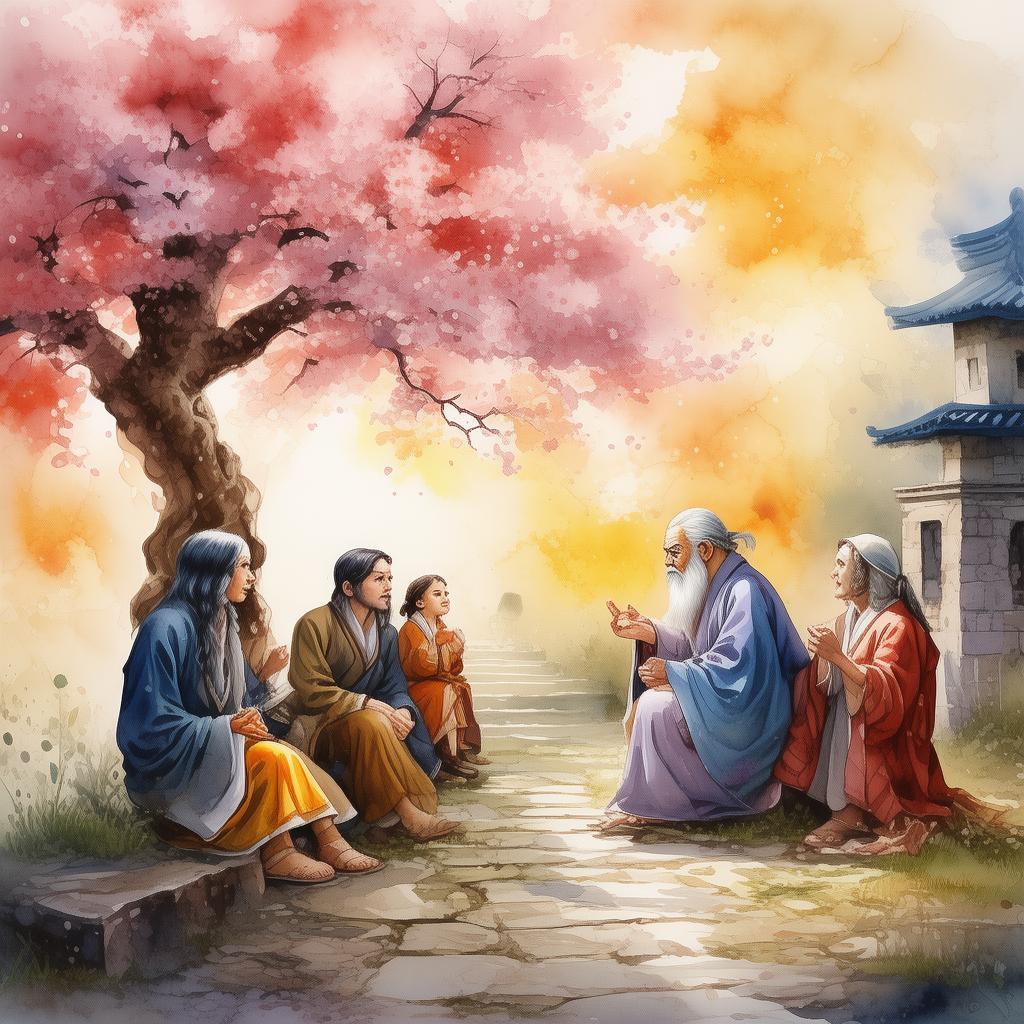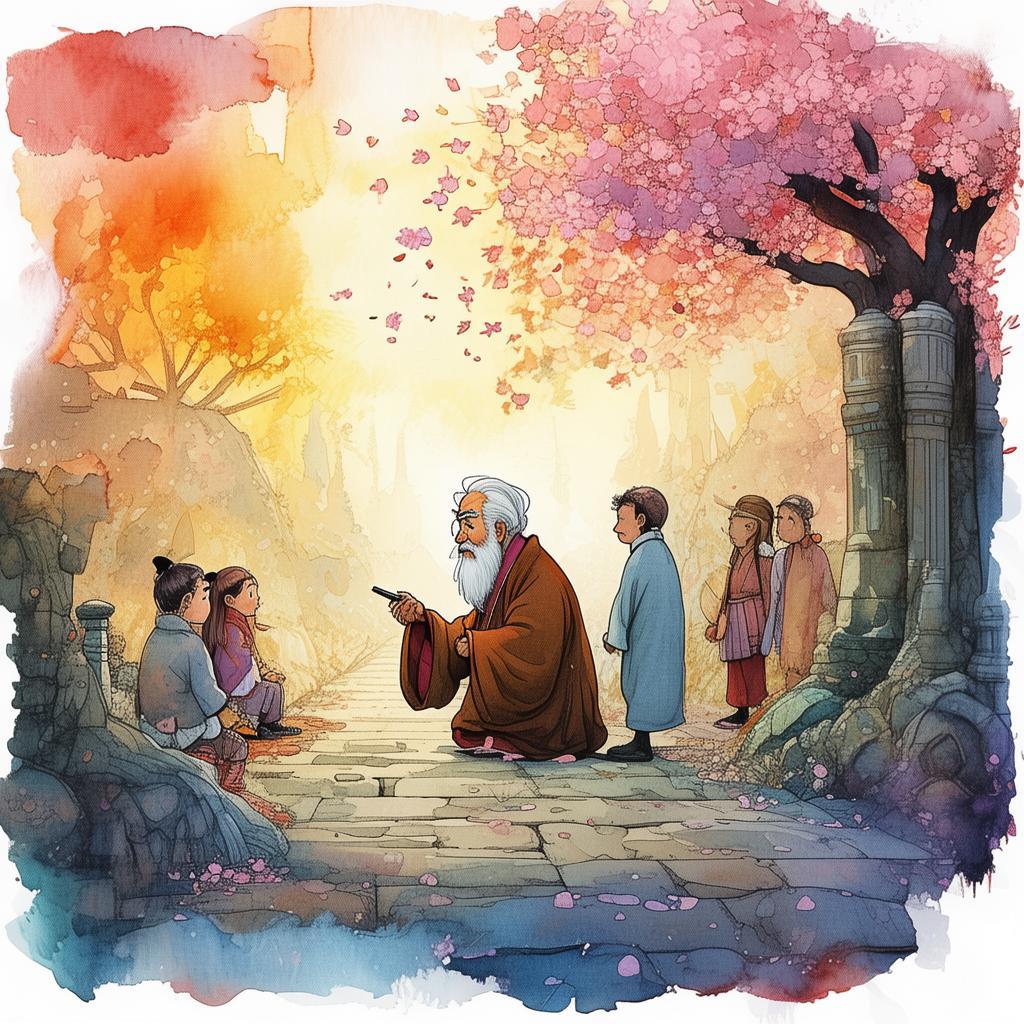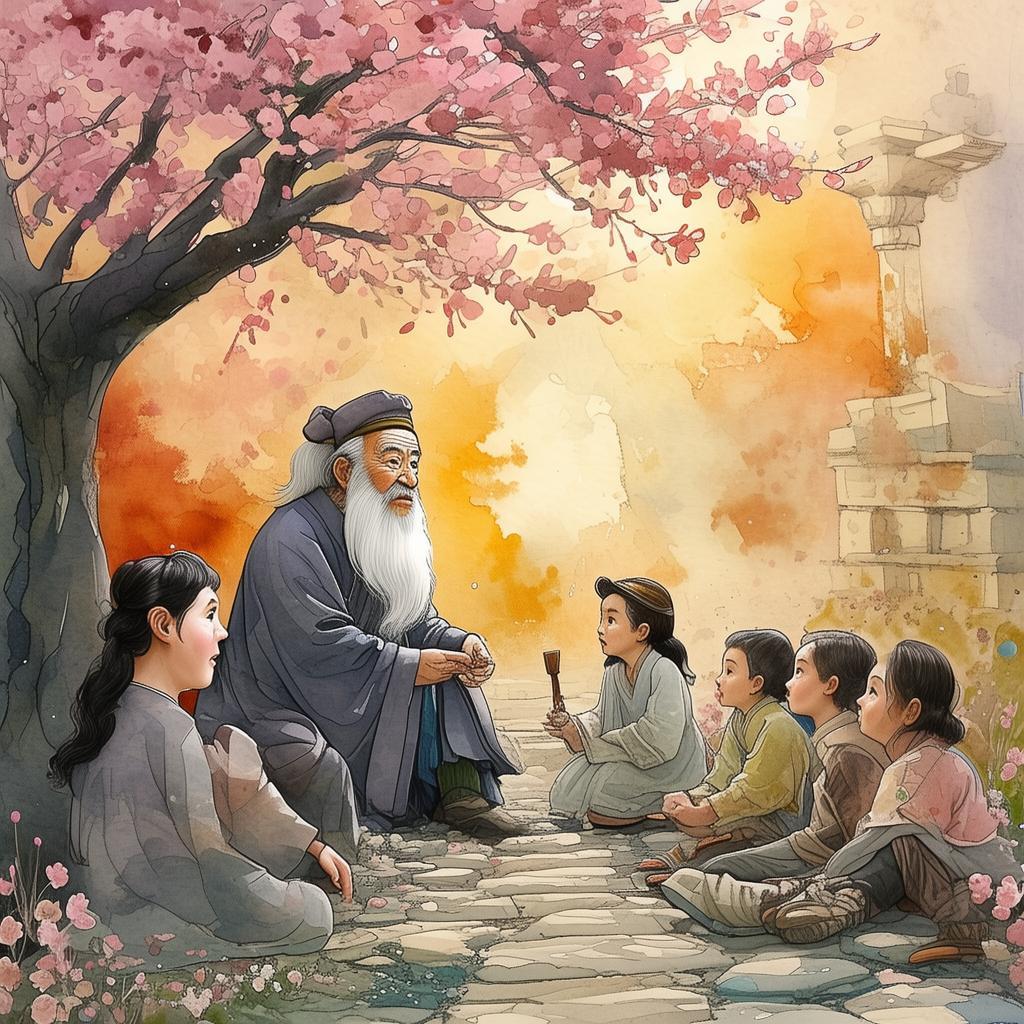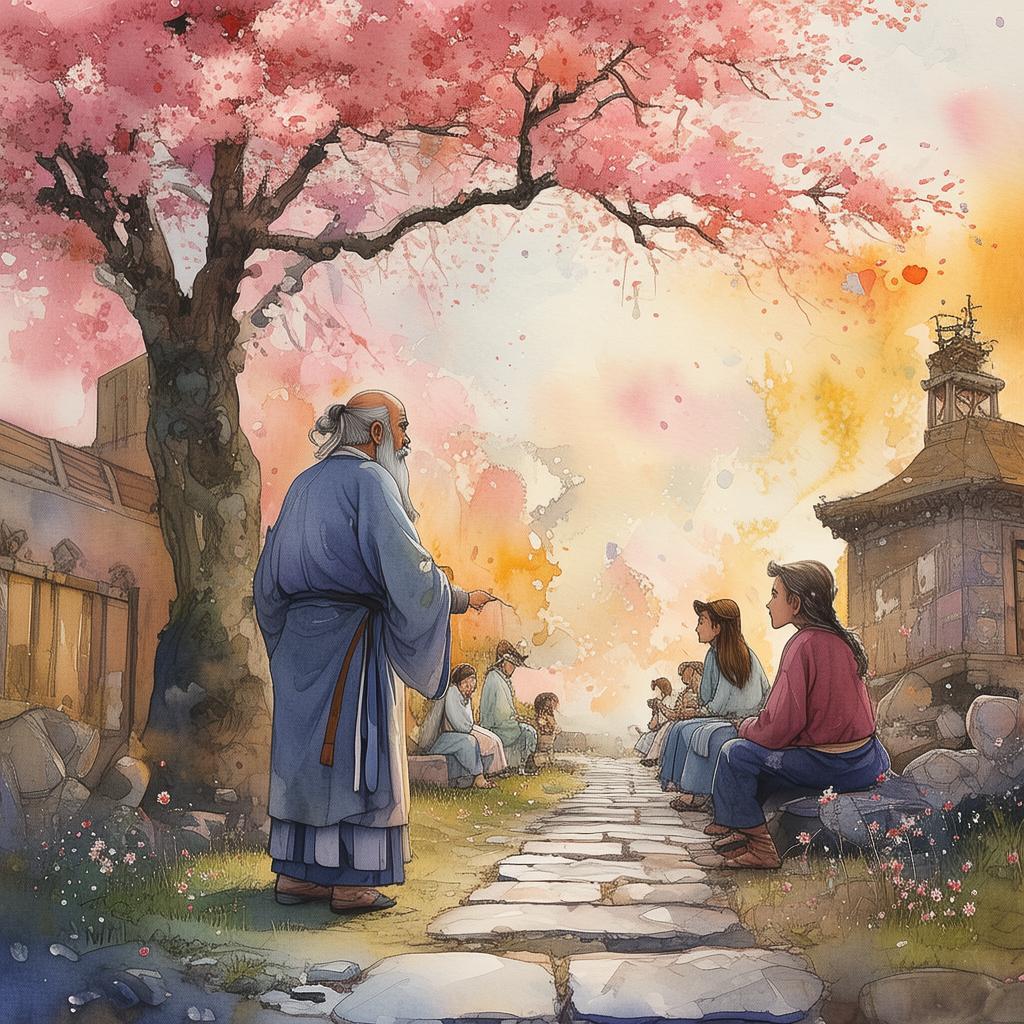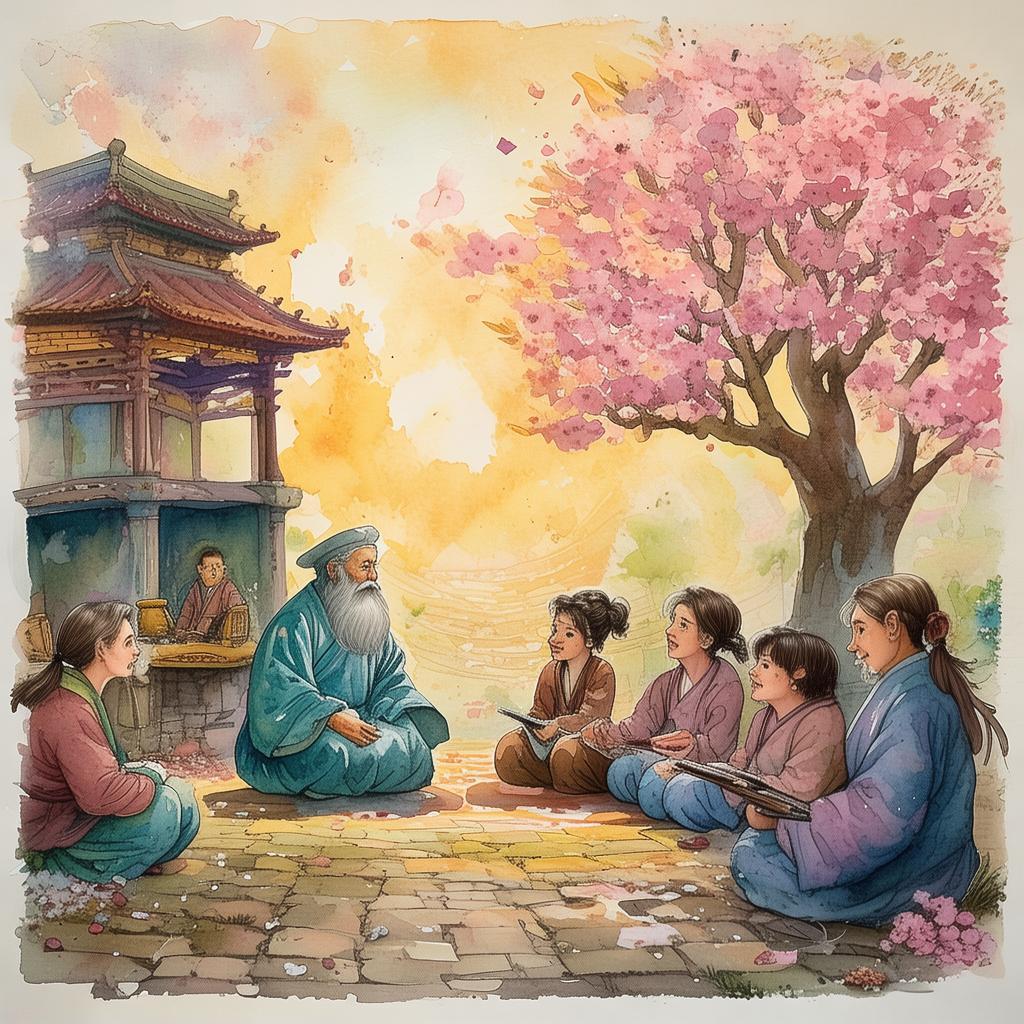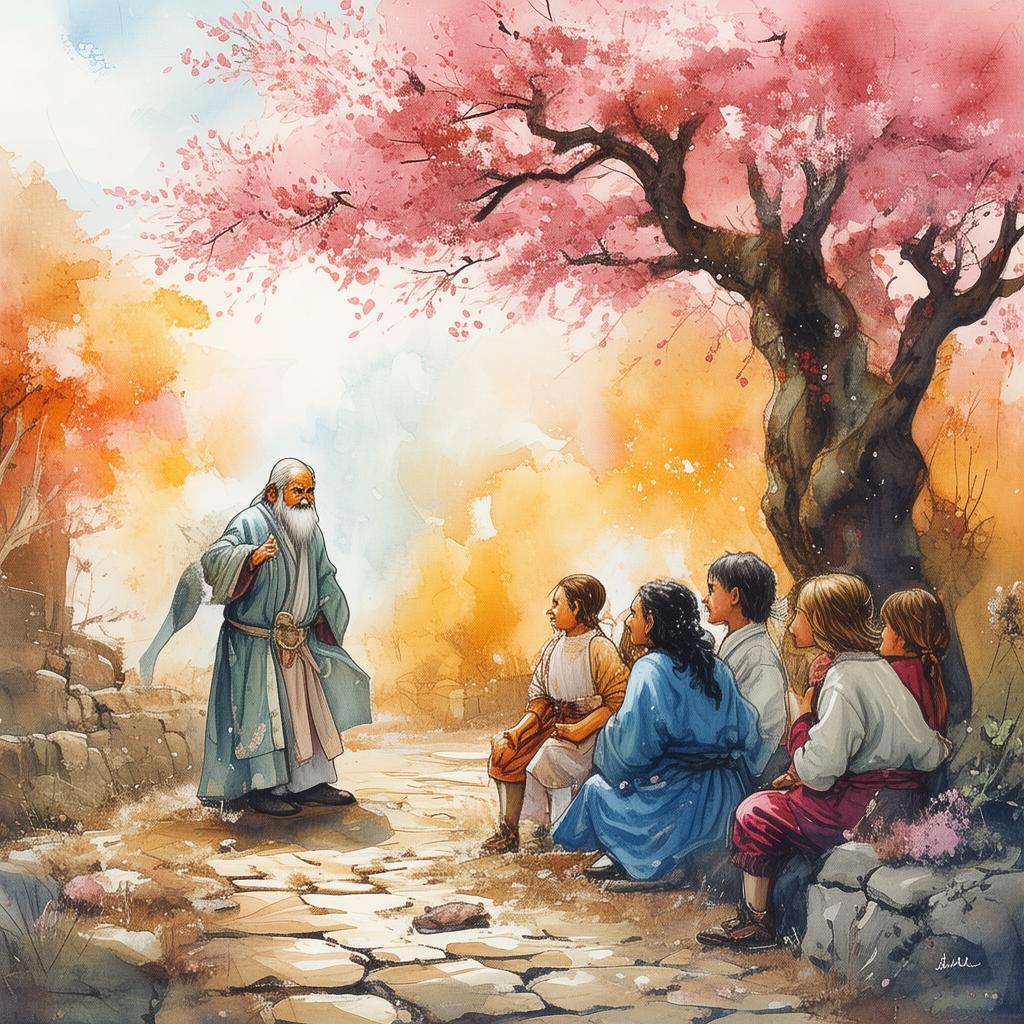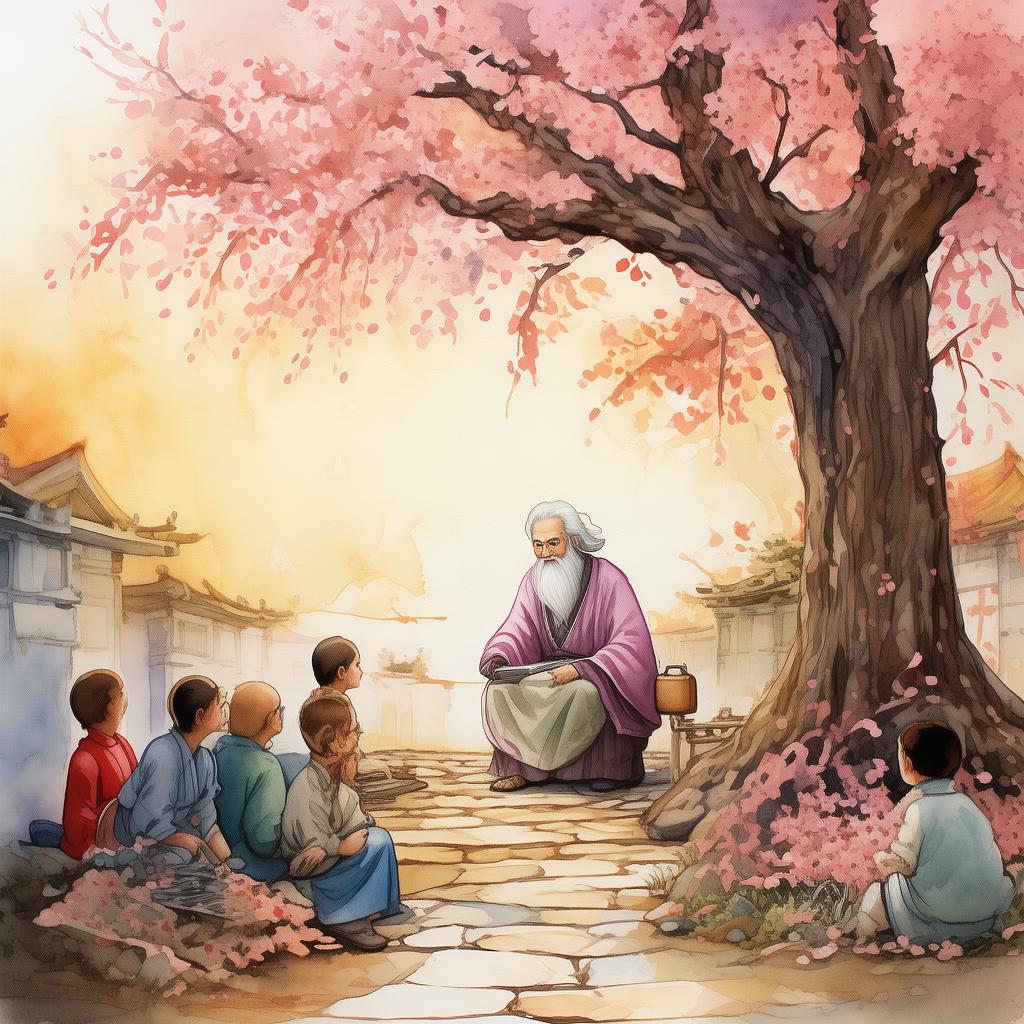Embroidering the Silk of Deceit
In the heart of the bustling Silk Road, where caravans of traders from far and wide converged, there lived a merchant named Li. His name was whispered with awe and suspicion, for he was known not only for his wealth but also for his cunning and shrewdness. Li was the guardian of a secret cargo that could change the fate of empires—the precious silk that adorned the courts of kings and queens.
One autumn morning, as the sun rose over the Great Wall, Li led his caravan towards the city of Dunhuang. The air was filled with the scent of incense and the distant sound of a camel's bell. His heart was heavy with the weight of the silk, which was wrapped in layers of fine cloth, concealed beneath the pile of spices and precious stones.
As they approached the city, Li knew that the road ahead was fraught with danger. The Silk Road was a place where greed and envy bred treachery, and the smallest misstep could mean the loss of everything. To protect his cargo, Li had planned meticulously, employing the ancient Chinese strategy of "ying jing" or "deception."
The first challenge came in the form of a mysterious figure who approached the caravan. He was a traveler with a long beard and piercing eyes, who claimed to be a wise sage and offered to join the caravan as a guide. Li, however, was not one to be easily swayed. He saw through the man's false piety and knew that he was a threat to his cargo.
Li decided to play a game of his own. He whispered to his closest aide, "Weave a tale of the snake." The aide nodded, understanding the plan. As the sage listened intently, Li began to recount a tale of a cunning snake that had once protected a treasure trove. The snake, it was said, could sense danger and would bite its own tail to escape harm.
The tale intrigued the sage, who, in his pride, decided to test the snake's power. He declared that if the snake could indeed bite its own tail, he would join the caravan and help protect the silk. Li, with a knowing smile, nodded in agreement.

The sage then approached the pile of spices and stones, searching for the snake. To his horror, he found a real snake, coiled and ready to strike. In a panic, he attempted to flee, but it was too late. The snake, sensing the danger, bit its own tail and vanished into thin air.
The tale of the snake spread like wildfire through the caravan, and soon, the word reached the ears of a local bandit chief. The chief, hearing of the treasure and the legend of the snake, decided to take matters into his own hands. He led his men and ambushed the caravan.
The battle was fierce, with arrows flying and swords clashing. But Li, with his clever tactics and the help of his aide, managed to outwit the bandits. As the dust settled, the chief was captured, and the cargo remained safe.
The sage, now humbled, joined the caravan as a loyal guardian. He was soon joined by others who had heard of the miraculous tale of the snake and the cunning merchant. Together, they protected the silk as it made its way through the Silk Road, a symbol of peace and prosperity.
However, as the caravan reached the city of Chang'an, a new threat emerged. A rival merchant, eager to claim the silk for himself, plotted to sabotage Li's journey. He sent a spy to infiltrate the caravan, but Li, ever vigilant, saw through the deception.
The spy, realizing that he had been outwitted, tried to flee, but Li was swift and decisive. He captured the spy and, with a smile, said, "The snake always finds its way back."
The spy was forced to reveal his master's plan, and Li, with his clever mind and the help of his loyal caravan, outsmarted the rival merchant once again.
As the caravan finally reached Chang'an, the city was abuzz with the news of Li's success. The silk was unloaded, and the city's elite came to admire the beautiful fabrics. Li, standing amidst the crowd, felt a sense of triumph. He had protected his cargo, outsmarted his enemies, and proven that the true power lay not in weapons or force, but in wit and cunning.
The tale of Li and the Silk Road's Serpent became a legend, a story that would be told for generations. And so, the saying "Weaving a web of deceit" was born, a testament to the power of intelligence and the indomitable spirit of those who walk the Silk Road.
✨ Original Statement ✨
All articles published on this website (including but not limited to text, images, videos, and other content) are original or authorized for reposting and are protected by relevant laws. Without the explicit written permission of this website, no individual or organization may copy, modify, repost, or use the content for commercial purposes.
If you need to quote or cooperate, please contact this site for authorization. We reserve the right to pursue legal responsibility for any unauthorized use.
Hereby declared.
